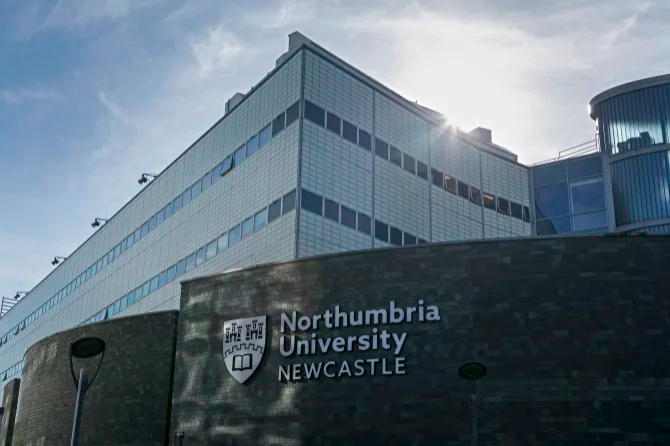Universities from across the region have joined the North East Local Enterprise Partnership, North East and North of Tyne Combined Authorities, the CBI on behalf of business organisations, and the North East Joint Transport Committee, in pledging their support for a new economic recovery plan that will help stabilise, adapt and rebuild the North East economy.
Durham University, Newcastle University, Northumbria University, University of Sunderland and Teesside University are all members of the North East COVID-19 Economic Response Group, which was established by the North East LEP at the beginning of the coronavirus pandemic to provide business resilience and ensure a collective response to the economic impact of COVID-19 on the North East economy.
The Group has recently published its economic response summary report.
The region’s academic institutions have continued to operate during lockdown, and the work carried out by North East universities is supporting the recovery of the UK economy as a whole and helping businesses in the region adapt to a new way of working.
Professor Jane Robinson, who is Dean of Engagement and Place at Newcastle University, represents the North East LEP region’s four universities (Newcastle/Sunderland/Northumbria/Durham) within the North East COVID-19 Economic Response Group.
She said: “The universities will play a central role in supporting the region to recover from the post Covid-19 economic downturn. Universities contribute to the regional economy in a myriad of ways – as employers and educators and by linking our region to the rest of the UK and internationally. Critically at this time, as the source of research and expertise that will help our region not only survive, but thrive, as we enter the economic and social recovery phase of COVID-19. This collaborative approach signals our collective commitment to working in partnership with businesses and our communities to bring this knowledge to bear on the region’s recovery.”
The universities will help support the region’s economic recovery by:
- Supporting new and existing businesses to innovate and grow, shaping and supporting a more sustainable and inclusive economy
- Identifying and meeting future skill needs – re-skilling and up-skilling the workforce
- Connecting world-leading research and analytic capability to support scenario planning, problem solving and policy making
- As major employers and ‘anchor institutions’ employing local people, supporting local supply chains, attracting and retaining talent and contributing to the vibrancy, culture and wider well-being of the region.
Helen Golightly, Chief Executive of the North East Local Enterprise Partnership, (North East LEP), said: “Universities have a vital role to play in helping our region return to pre-coronavirus levels.
“They provide a highly skilled recruitment pipeline which will be essential for innovation businesses in our region. Tech, digital and life sciences are all areas of strategic importance for the North East so delivering a workforce with the skills that industry needs is key for the sectors’ success and the recovery of our economy.
“Knowledge exchange between academia and our region’s business community will help companies innovate and grow. High growth businesses are an essential part of a healthy economy; the expertise and knowledge at our universities can help us create more.
“As well as working extremely hard to deliver a world-class student experience during the coronavirus crisis, universities have a central role to play in our region’s economic recovery too.”
Universities are contributing to the new economic recovery plan in a number of different ways. Durham and Newcastle Universities are part of the N8 Research Partnership, which consists of the eight most research-intensive Universities in the North of England.
The N8 is currently involved in developing opportunities to unlock new business opportunities in the green economy, through the Net Zero North project, contributing to lasting prosperity for the North of England and beyond. This is being achieved by accelerating the growth of the low carbon goods and services sector in the Northern Powerhouse through university-business-public sector collaboration.
Through the Northern Accelerator, Sunderland, Northumbria, Newcastle and Durham Universities are continuing to accelerate the commercialisation of the North East’s world-class research to help boost the region’s economy.
Northumbria has joined forces with regional fund management firm NEL Fund Managers to launch a major new programme to help North East businesses grow or expand into the health, wellness and social care delivery sectors. The new Purposeful Health Growth Accelerator, will offer practical support, advice and growth capital investment worth more than £1m in total to up to 200 North East firms.
Teesside University’s £22.3 million National Horizons Centre (NHC), which officially opened in October 2019, is a national centre of excellence for bioscience that brings together research, teaching and enterprise. The NHC was established to directly address the potential of the bioeconomy.
Within days of the World Health Organisation declaring a global pandemic, the NHC supplied tens of thousands of pounds of specialist kit and equipment to North Tees and Hartlepool Hospitals NHS Foundation Trust to help them scale-up testing for Covid-19.
Other key initiatives led by the region’s universities to support the recovery of the North East’s economy include student and graduate internships in business and targeted enterprise programmes encouraging student startups.
For more information about the North East COVID-19 Response Group and the economic recovery plan visit www.northeastlep.co.uk.
Click here to see examples from Durham University, Newcastle University, Northumbria University, University of Sunderland and Teesside University showing how they are working with the region to support its economic recovery.









